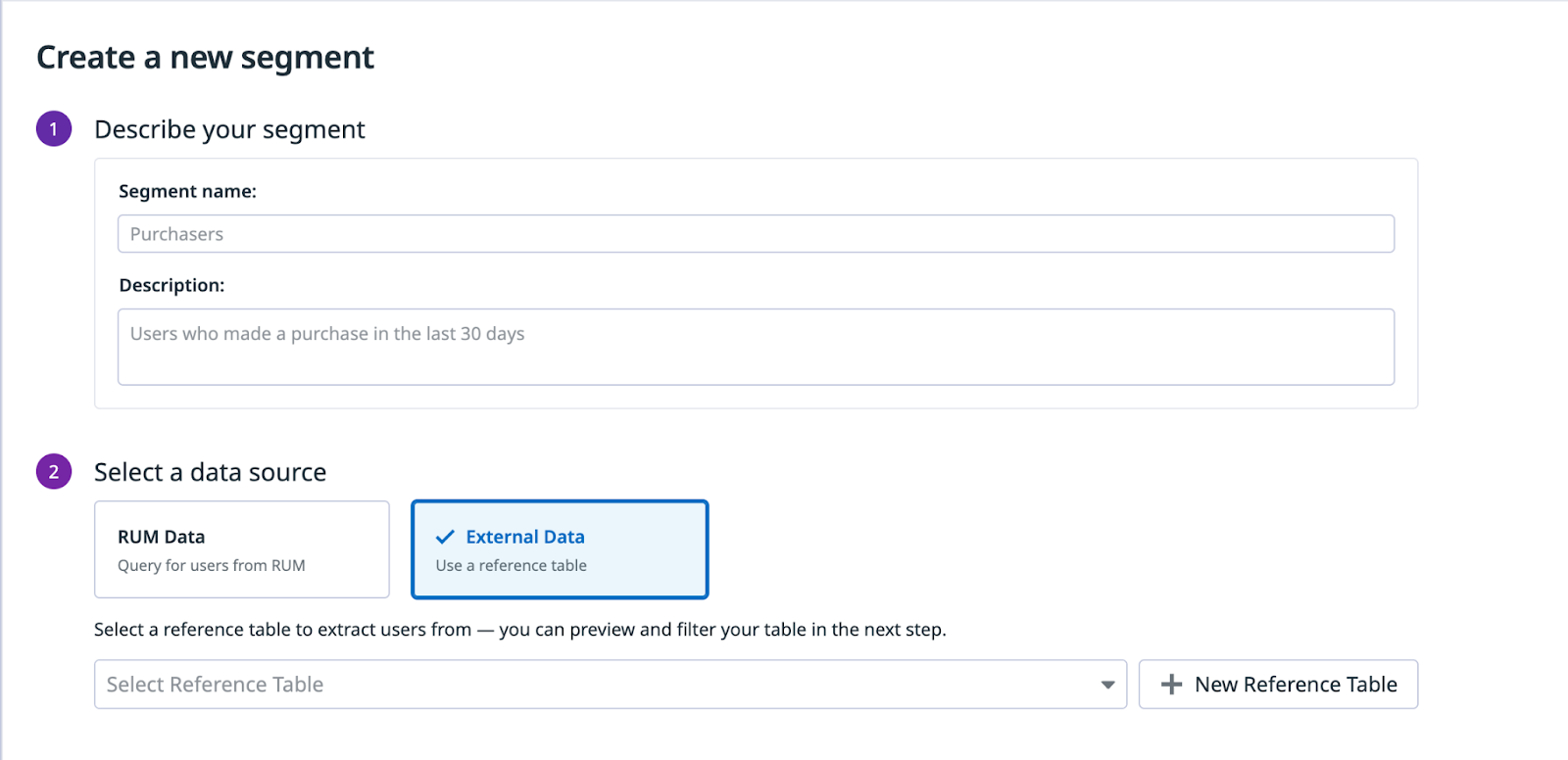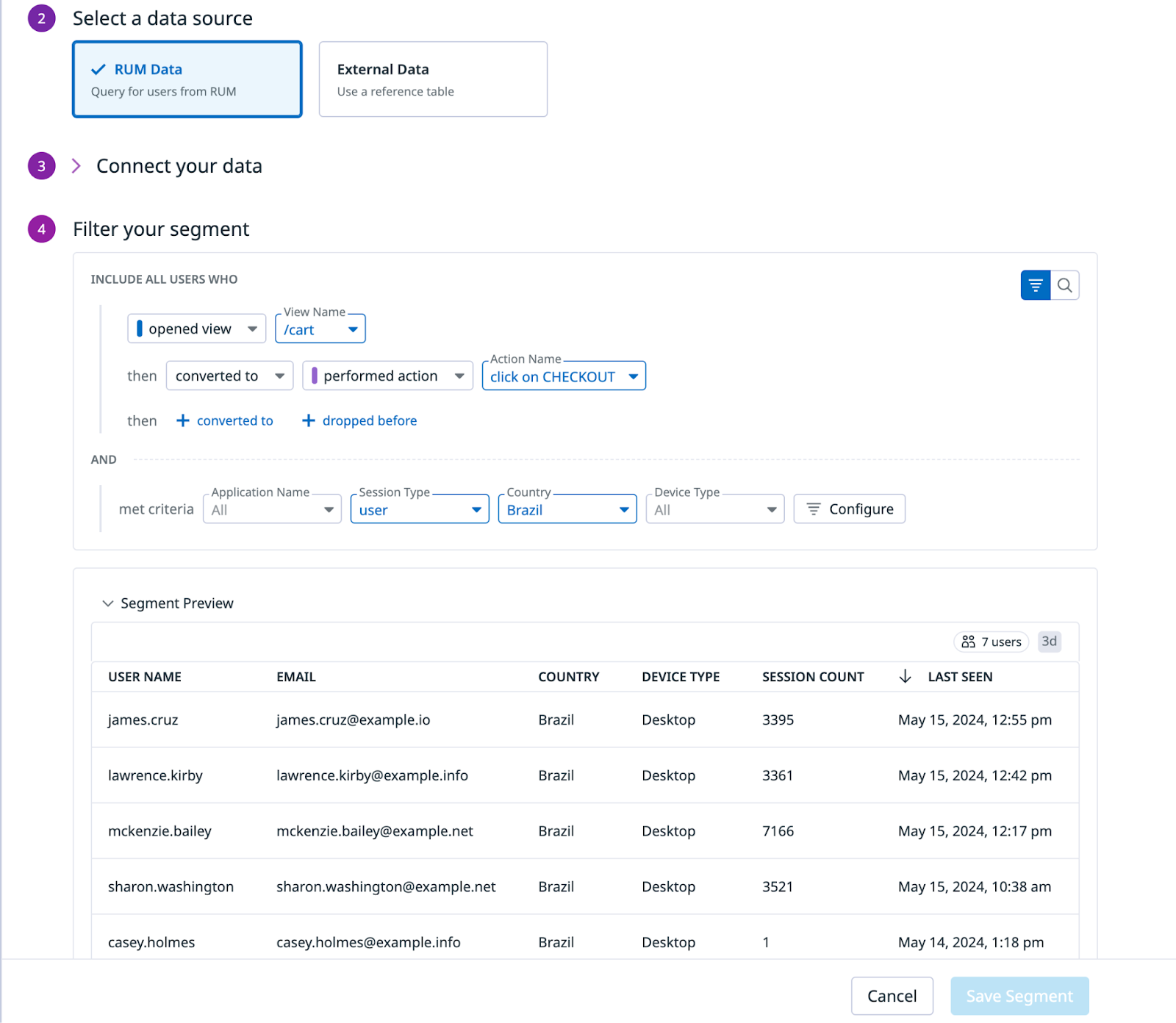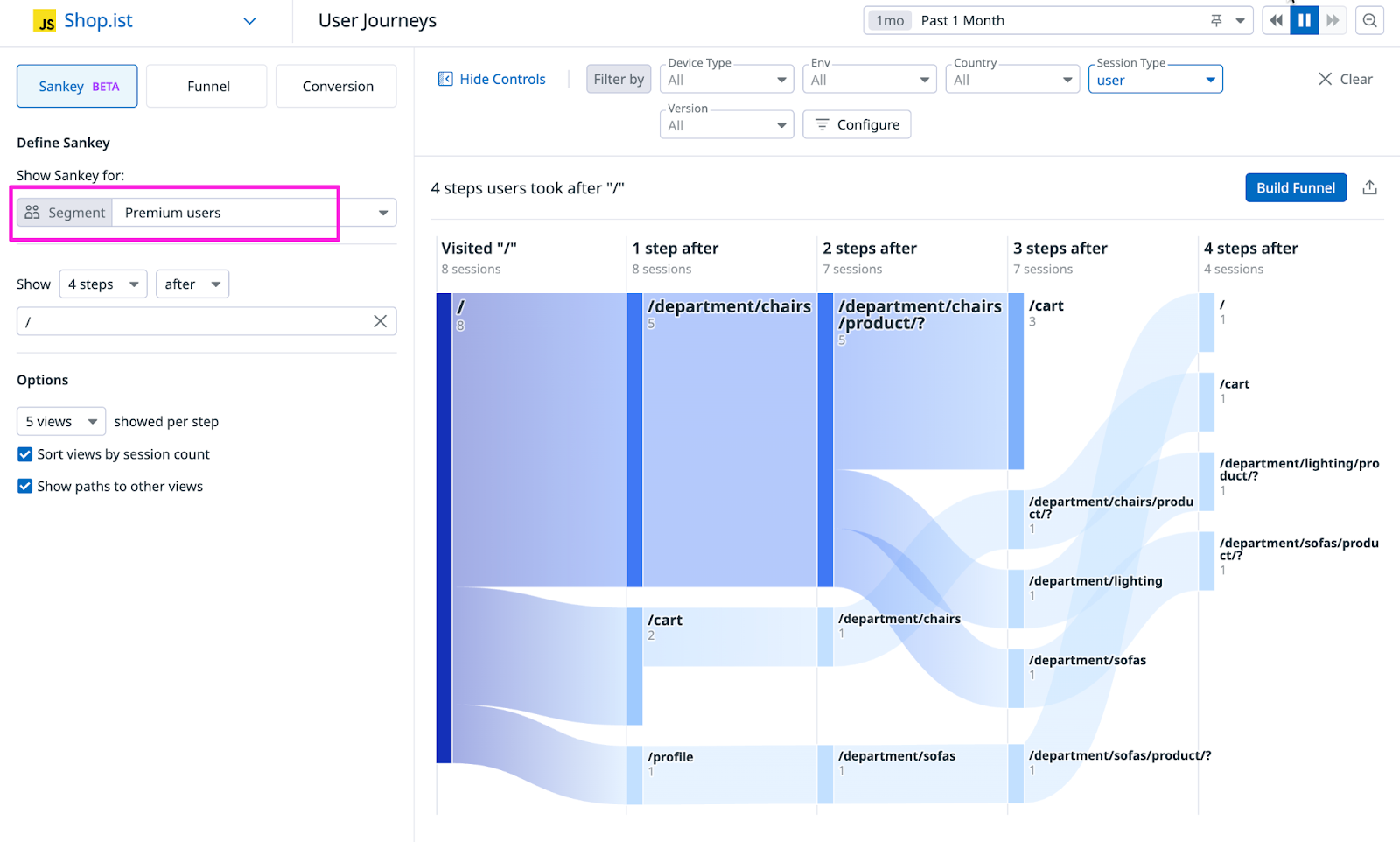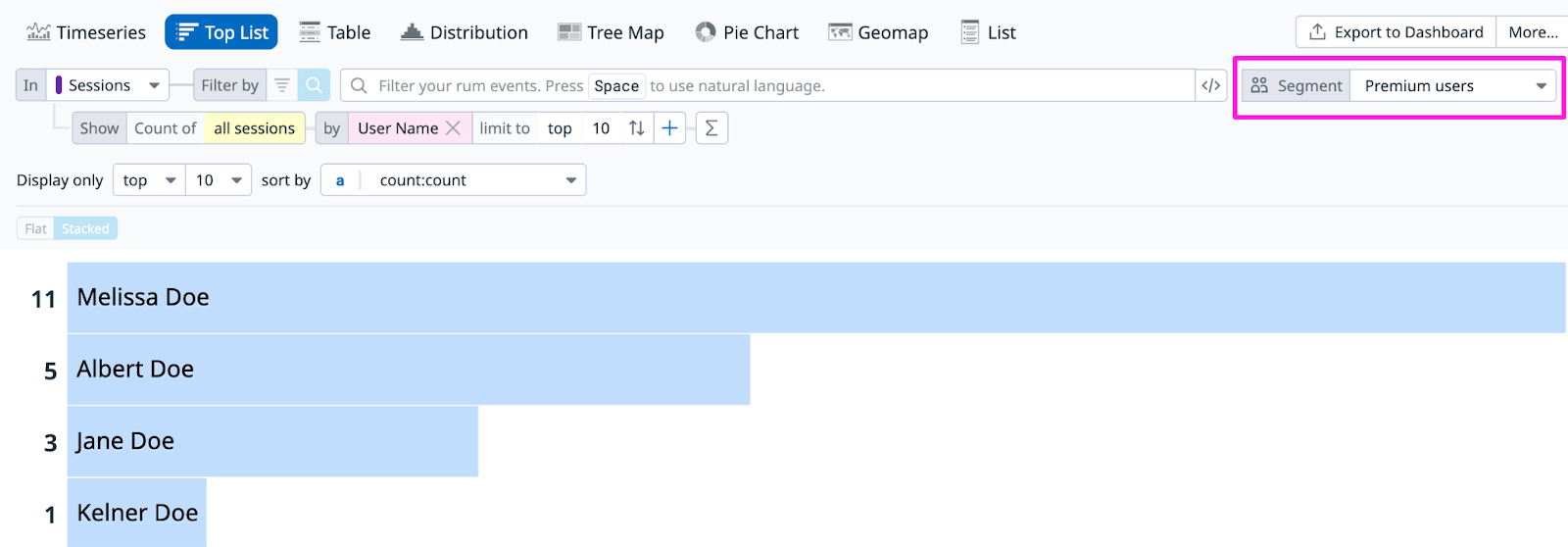- Esenciales
- Empezando
- Agent
- API
- Rastreo de APM
- Contenedores
- Dashboards
- Monitorización de bases de datos
- Datadog
- Sitio web de Datadog
- DevSecOps
- Gestión de incidencias
- Integraciones
- Internal Developer Portal
- Logs
- Monitores
- OpenTelemetry
- Generador de perfiles
- Session Replay
- Security
- Serverless para Lambda AWS
- Software Delivery
- Monitorización Synthetic
- Etiquetas (tags)
- Workflow Automation
- Centro de aprendizaje
- Compatibilidad
- Glosario
- Atributos estándar
- Guías
- Agent
- Arquitectura
- IoT
- Plataformas compatibles
- Recopilación de logs
- Configuración
- Automatización de flotas
- Solucionar problemas
- Detección de nombres de host en contenedores
- Modo de depuración
- Flare del Agent
- Estado del check del Agent
- Problemas de NTP
- Problemas de permisos
- Problemas de integraciones
- Problemas del sitio
- Problemas de Autodiscovery
- Problemas de contenedores de Windows
- Configuración del tiempo de ejecución del Agent
- Consumo elevado de memoria o CPU
- Guías
- Seguridad de datos
- Integraciones
- Desarrolladores
- Autorización
- DogStatsD
- Checks personalizados
- Integraciones
- Build an Integration with Datadog
- Crear una integración basada en el Agent
- Crear una integración API
- Crear un pipeline de logs
- Referencia de activos de integración
- Crear una oferta de mercado
- Crear un dashboard de integración
- Create a Monitor Template
- Crear una regla de detección Cloud SIEM
- Instalar la herramienta de desarrollo de integraciones del Agente
- Checks de servicio
- Complementos de IDE
- Comunidad
- Guías
- OpenTelemetry
- Administrator's Guide
- API
- Partners
- Aplicación móvil de Datadog
- DDSQL Reference
- CoScreen
- CoTerm
- Remote Configuration
- Cloudcraft
- En la aplicación
- Dashboards
- Notebooks
- Editor DDSQL
- Reference Tables
- Hojas
- Monitores y alertas
- Watchdog
- Métricas
- Bits AI
- Internal Developer Portal
- Error Tracking
- Explorador
- Estados de problemas
- Detección de regresión
- Suspected Causes
- Error Grouping
- Bits AI Dev Agent
- Monitores
- Issue Correlation
- Identificar confirmaciones sospechosas
- Auto Assign
- Issue Team Ownership
- Rastrear errores del navegador y móviles
- Rastrear errores de backend
- Manage Data Collection
- Solucionar problemas
- Guides
- Change Tracking
- Gestión de servicios
- Objetivos de nivel de servicio (SLOs)
- Gestión de incidentes
- De guardia
- Status Pages
- Gestión de eventos
- Gestión de casos
- Actions & Remediations
- Infraestructura
- Cloudcraft
- Catálogo de recursos
- Universal Service Monitoring
- Hosts
- Contenedores
- Processes
- Serverless
- Monitorización de red
- Cloud Cost
- Rendimiento de las aplicaciones
- APM
- Términos y conceptos de APM
- Instrumentación de aplicación
- Recopilación de métricas de APM
- Configuración de pipelines de trazas
- Correlacionar trazas (traces) y otros datos de telemetría
- Trace Explorer
- Recommendations
- Code Origin for Spans
- Observabilidad del servicio
- Endpoint Observability
- Instrumentación dinámica
- Live Debugger
- Error Tracking
- Seguridad de los datos
- Guías
- Solucionar problemas
- Límites de tasa del Agent
- Métricas de APM del Agent
- Uso de recursos del Agent
- Logs correlacionados
- Stacks tecnológicos de llamada en profundidad PHP 5
- Herramienta de diagnóstico de .NET
- Cuantificación de APM
- Go Compile-Time Instrumentation
- Logs de inicio del rastreador
- Logs de depuración del rastreador
- Errores de conexión
- Continuous Profiler
- Database Monitoring
- Gastos generales de integración del Agent
- Arquitecturas de configuración
- Configuración de Postgres
- Configuración de MySQL
- Configuración de SQL Server
- Configuración de Oracle
- Configuración de MongoDB
- Setting Up Amazon DocumentDB
- Conexión de DBM y trazas
- Datos recopilados
- Explorar hosts de bases de datos
- Explorar métricas de consultas
- Explorar ejemplos de consulta
- Exploring Database Schemas
- Exploring Recommendations
- Solucionar problemas
- Guías
- Data Streams Monitoring
- Data Jobs Monitoring
- Data Observability
- Experiencia digital
- Real User Monitoring
- Pruebas y monitorización de Synthetics
- Continuous Testing
- Análisis de productos
- Entrega de software
- CI Visibility
- CD Visibility
- Deployment Gates
- Test Visibility
- Configuración
- Network Settings
- Tests en contenedores
- Repositories
- Explorador
- Monitores
- Test Health
- Flaky Test Management
- Working with Flaky Tests
- Test Impact Analysis
- Flujos de trabajo de desarrolladores
- Cobertura de código
- Instrumentar tests de navegador con RUM
- Instrumentar tests de Swift con RUM
- Correlacionar logs y tests
- Guías
- Solucionar problemas
- Code Coverage
- Quality Gates
- Métricas de DORA
- Feature Flags
- Seguridad
- Información general de seguridad
- Cloud SIEM
- Code Security
- Cloud Security Management
- Application Security Management
- Workload Protection
- Sensitive Data Scanner
- Observabilidad de la IA
- Log Management
- Observability Pipelines
- Gestión de logs
- CloudPrem
- Administración
- Gestión de cuentas
- Seguridad de los datos
- Ayuda
Segmentación
Información general
La segmentación es una función del Análisis de productos que te permite analizar y comprender grupos o segmentos específicos de tu base de usuarios. Al segmentar a tus usuarios en función de diversas características y comportamientos, puedes descubrir información valiosa, identificar tendencias y tomar decisiones basadas en datos para optimizar tu producto y la experiencia del usuario. Por ejemplo, puedes segmentar a los usuarios por importe de compra, usuarios activos en un país determinado, usuarios en periodo de prueba o usuarios en periodo de prueba que luego se convirtieron a una organización de pago.
Crear un segmento
Para crear un nuevo segmento, ve a Digital Experience Monitoring > Product Analytics > User Segments (Monitorización de experiencia digital > Análisis de productos > Segmentos de usuarios) desde la navegación. Puedes elegir entre dos fuentes para crear un nuevo segmento:
- Datos de análisis de productos
- Datos externos (cargar una tabla de referencia)
Uso de los datos del Análisis de productos
Para crear un nuevo segmento utilizando datos del Análisis de productos:
Elige el atributo de usuario con el que deseas conectar tus datos. En el ejemplo siguiente es
usr.id, pero puedes utilizar cualquier atributo de usuario disponible, comousr.emailousr.name.En la sección Filter your segment (Filtrar tu segmento), puedes filtrar en función de cualquier atributo recopilado por el SDK, o atributos personalizados que hayas añadido para crear un segmento de usuarios detallado.
En el siguiente ejemplo, el segmento se filtra a todos los usuarios que estuvieron en la página
/carty luego hicieron clic en el botón de pago (y lo hicieron desde Brasil):
Uso de datos externos o de terceros
Para crear un segmento utilizando datos externos o de terceros:
- Consulta la documentación de Tablas de referencia para saber cómo cargar y crear una Tabla de referencia.
- Asegúrate de conectar correctamente el tipo de datos (por ejemplo,
usr.id,usr.nameousr.email) con el nombre de la columna. - Para mayor precisión, asegúrate de que existen datos en el Análisis de productos para los usuarios del segmento.
Aprovechar los segmentos a través del Análisis de productos
En sankeys
En la página de Sankey, puedes filtrar los datos en la visualización para reflejar un segmento seleccionado de usuarios. Esto te permite observar la experiencia y los patrones de tráfico de un conjunto particular de usuarios en un segmento determinado. El siguiente ejemplo muestra un diagrama de Sankey sólo para los usuarios del segmento “Usuarios prémium”.
En Analytics Explorer
Puedes filtrar los datos en el Analytics Explorer para reflejar un conjunto seleccionado de usuarios que se encuentran en un segmento determinado. El ejemplo siguiente muestra una lista de usuarios en el segmento “Usuarios prémium” que estuvieron activos en el último mes, organizados por el número de sesiones que tuvieron.
Leer más
Más enlaces, artículos y documentación útiles:




